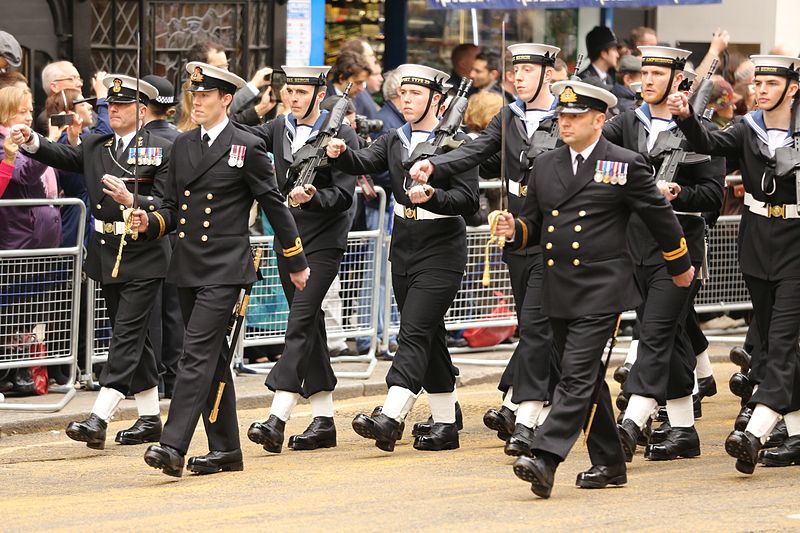Seventy years ago, the Universal Declaration of Human Rights was adopted by the United Nations General Assembly in Paris.
Described by Eleanor Roosevelt, chair of the agreement’s drafting committee, as an “international Magna Carta of all mankind”, it was the first international agreement on the fundamental principles of human rights and a vow from nations across the globe that the terrible atrocities of the Second World War would never be allowed to happen again.
To celebrate 70 years of the Universal Declaration of Human Rights we’re launching a ‘A Lifetime of Human Rights’ series. Throughout 2019, we will tell a range of stories about influencers, campaigners and ordinary people who have fought for rights and the rights of others. Starting with this…
Duncan Lustig-Prean And John Beckett
It’s easy to take some of the freedoms we enjoy today, thanks to the Human Rights Act and Human Rights Convention – a descendent of the Universal Declaration for Human Rights, for granted. But it hasn’t always been this way. Brave men and women have long fought against injustice that infringes not just on their fundamental rights, but on the rights of others too.
Duncan Lustig-Prean and John Beckett for example.
Without Lustig-Prean’s and Beckett’s tireless battle against the Royal Navy in the late-1990s – as well as RAF nurse Jeanette Smith and RAF officer Graeme Grady – gay and lesbian Britons might still be banned from serving in the armed forces.
Take the plight of Duncan Lustig-Prean and John Beckett for example. Without their tireless battle against the Royal Navy in the late-1990s – as well as RAF nurse Jeanette Smith and RAF officer Graeme Grady – gay and lesbian Britons might still be banned from serving in the armed forces.
‘An Outstanding Prospect’
 HMS Birmingham in 1993 Credit: Wikimedia Commons
HMS Birmingham in 1993 Credit: Wikimedia Commons
Lustig-Prean joined the Royal Navy as a radio operator in 1982. He went on to become a midshipman in the executive branch of the navy and, as one evaluation noted of him, was the “sort of person that the Royal Navy needs to attract and retain”.
He continued to perform highly in his role. A further Navy report on him in 1993 called him “an outstanding prospect for early promotion to commander.”
In 1994, he achieved the promotion and was made a lieutenant-commander.
An Invasion Of Privacy
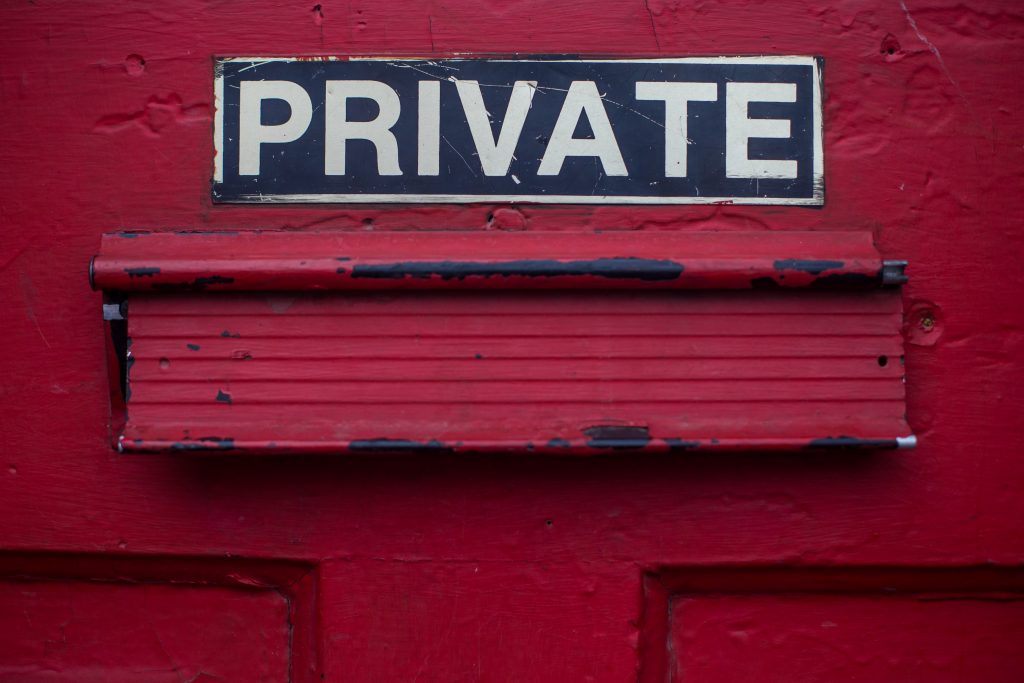 Credit: Unsplash
Credit: Unsplash
However, things started to unravel for Lustig-Prean after he was informed that the Royal Navy Special Investigations Branch (“the service police”) had been given his name anonymously in connection with an allegation of homosexuality. He had been in a relationship with a man for around two-and-a-half years and admitted his romance to his commanding officer.
In January 1995, Lustig-Prean was discharged by the Admiralty Board on the grounds of his sexual orientation.
He was interrogated at interview stage by the Navy on other occasions – and asked to prove that he had never had a homosexual affair with another service officer. In January 1995, he was discharged by the Admiralty Board on the grounds of his sexual orientation.
With his dismissal went his livelihood, too, and the bonus payment he received for his promotion was recouped by the Navy.
A Breach Of Trust
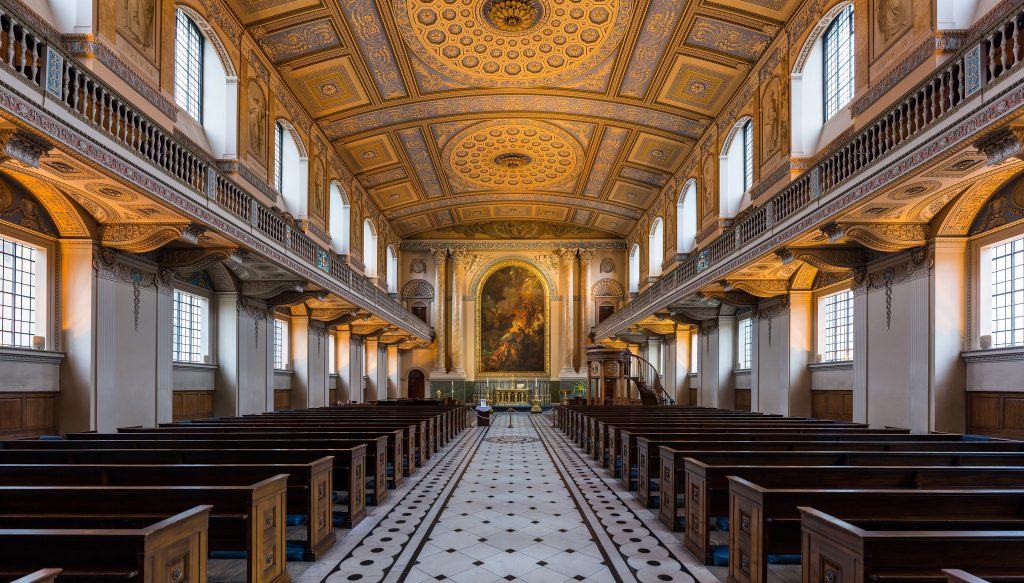 Royal Naval College Chapel, Greenwich Credit: David Lliff Flickr
Royal Naval College Chapel, Greenwich Credit: David Lliff Flickr
John Beckett was enlisted for 22 years of service in 1989. He became a substantive weapons engineering mechanic in 1991. Reports on his work included that he displayed good leadership skills, with the potential to reach officer level with more experience.
In 1993, he was refused time off from the Navy for what he disclosed was a “personal matter”.
Looking for support, he turned to the service chaplain. Beckett told the chaplain that he was gay and was worried about his health. What he didn’t expect was to have to repeat what he’d told to the chaplain in confidence to his lieutenant-commander shortly afterwards.
Intrusive Interviews
Beckett was then called for an interview by the Service Police and suspended pending a search of his property. In among his things, they found slides of Beckett and his partner, as well as personal postcards sent between the two, and seized them as evidence.
Beckett was dismissed for being gay in 1993. He complained about the decision to discharge him to Admiralty Board, but on 6 December 1994 the Board threw out his complaint.
Details were sought as to how and what he did when he realised he was homosexual. He faced increasingly intrusive questions about what sort of feelings he had for a man, whether he had been “touched up” or “abused” as a child and whether he had bought pornographic magazines.
Beckett was dismissed for being gay in 1993. He complained about the decision to discharge him to Admiralty Board, but on 6 December 1994 the Board threw out his complaint.
Refusing To Give Up
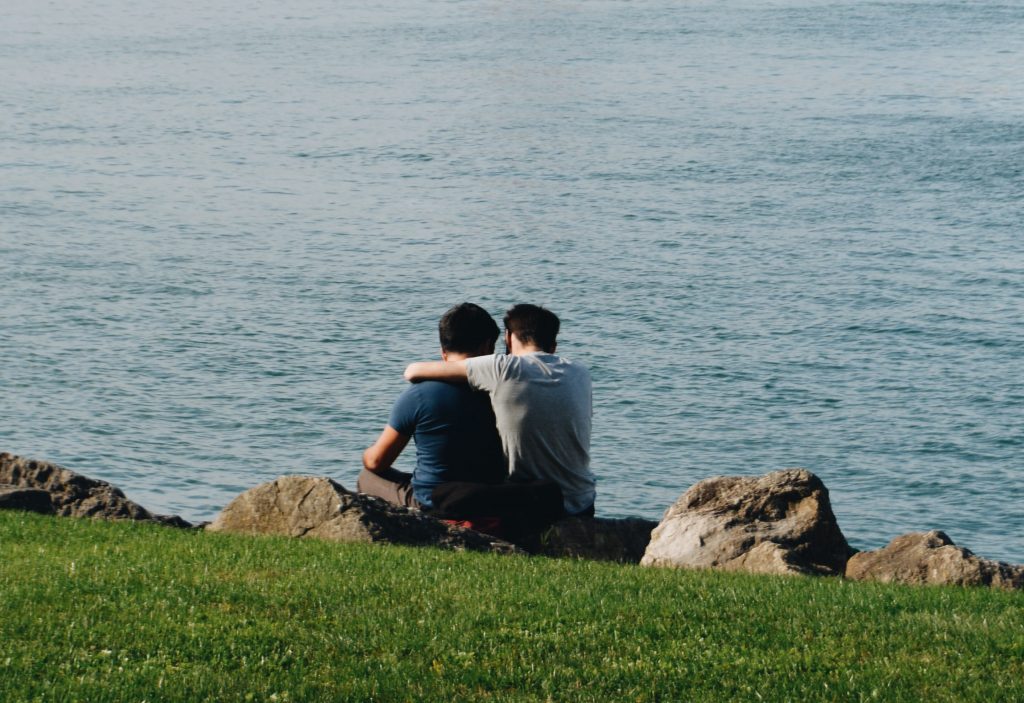 Photo credit: Madalena Veloso/ Unsplash
Photo credit: Madalena Veloso/ Unsplash
But neither Beckett, nor Lustig-Prean, gave up there.
Article 8 of the Human Rights Convention states that everyone has the right to respect for one’s “private and family life, his home and his correspondence”, subject to certain restrictions that are “in accordance with law” and “necessary in a democratic society”.
Article 14 of the Human Rights Convention also states that the freedoms set forth within the Convention should be secured without discrimination on any ground. This includes discrimination by sex, race, colour, language, religion, political or other opinion, national or social origin, association with a national minority, property, birth or other status.
So after the Appeal Court in London rejected their cases in 1995, upholding the Ministry of Defence’s right to ban homosexuals from service in the armed forced on the basis that their presence was thought to damage the morale and effectiveness of units in combat, they took their fight to the European Court of Human Rights in Strasbourg.
Winning The War
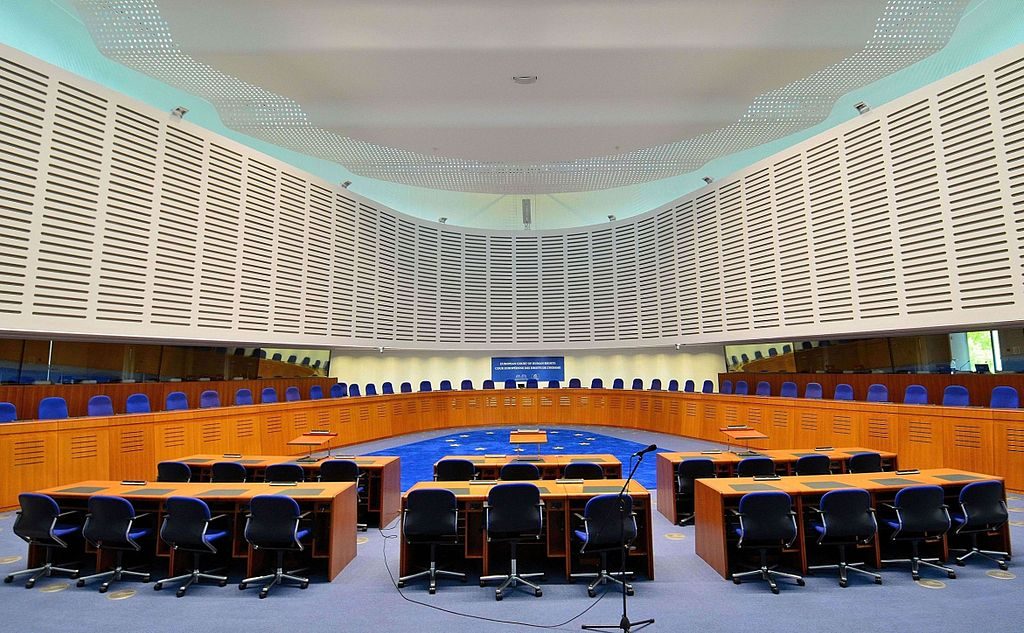 Credit: The Grand Chamber of the European Court of Human Rights in Strasbourg Wikimedia
Credit: The Grand Chamber of the European Court of Human Rights in Strasbourg Wikimedia
It would take four years of battling – supported by LGBTQ+ group Stonewall – before the European Court of Human Rights would rule in their favour.
Judges said that not only had their dismissal violated Article 8 and 14 of the Human Rights Convention, but also that the Ministry of Defence’s policy on banning homosexual citizens from the armed forces was in itself a breach of the Convention.
Judges said that their dismissal violated Article 8 and 14 of the Human Rights Convention and the Ministry of Defence’s policy on banning homosexual citizens from the armed forces was breach of the Convention.
Each of the four claimants – Lustig-Prean, Beckett, and the two RAF officers – were awarded damages of £19,000 by the Court for the intrusion into their private lives when they were searched and investigated for homosexuality by the Service Police.
Furthermore, the Court found that they had all suffered “especially grave” infringements on their human rights, and awarded further damages for loss of earnings, which varied according to their career prospects. Lustig-Prean was given £94,875 while Beckett won £55,000.
As a result of the ruling, the Ministry of Defence was forced to lift the ban on homosexuality and by 2000 it was revoked in the UK.
Opposing Views
The decision was not without its opponents. Late army General Sir Anthony Farrar-Hockley was appalled by it and wrote in an article for the BBC. He thought that allowing homosexuality in the armed forces undermined comradeship. He also cited two surveys that found an overwhelming majority of military servicemen found homosexuality “abhorrent”.
“The services are recruited and trained for war fighting,” Sir Farrar-Hockley argued.
“In this function death or wounds are a regular outcome. Those engaged are obliged to operate in close groups for long periods; comradeship is the binding factor. At a time when homogeneity is essential, sexual squabbles will be disruptive. Perhaps fatally so.”
One brigadier even resigned his post, the Guardian reported.
Gay Wedding In The Barracks
DEFENCE PERSONNEL MARCH WITH PRIDE THROUGH LONDONThe MOD celebrated the outstanding commitment and contribution its LGBT+ personnel make to Defence. More than 200 Armed Forces and civilian Defence personnel, led by the Band of the Welsh Guards, marched in this year’s Pride in London to mark the 50th anniversary of the partial decriminalisation of homosexuality in England and Wales. In a show of support for the lesbian, gay, bisexual and transgender community and LGBT+ Armed Forces staff, the Commander Field Army Lieutenant General Patrick Sanders, who is the Army's Diversity and Inclusivity Champion, also hosted an event on Saturday morning at the Union Jack Club for all Defence personnel taking part in the march.
Posted by British Army on Saturday, 8 July 2017
In 2017, the Ministry of Defence celebrated the outstanding commitment and contribution its LGBT+ personnel make to Defence. More than 200 Armed Forces and civilian Defence personnel, led by the Band of the Welsh Guards, marched in Pride in London to mark the 50th anniversary of the partial decriminalisation of homosexuality in England and Wales Credit: British Army Facebook
However, there was a lot of support for the action, too.
Captain Michael Fry told the Independent a decade later, having witnessed a gay man serving under his command in the Household Cavalry, lance-corporal James Wharton, host his wedding reception at the regimental barracks: “Colour, creed, age and who you sleep with all become irrelevant when you’re both being shot at.”
Colour, creed, age and who you sleep with all become irrelevant when you’re both being shot at.
Lance-corporal James Wharton
“The entire regiment has been really supportive,” Wharton said.
“When I went to ask the Squadron Leader, Major Nana Twumasi-Ankrah, for permission to get married, he just said ‘This is fantastic, congratulations’.”
If you have had to fight to have your human rights recognised or respected in the UK please get in touch with us. We want to feature your stories in our ‘A Lifetime of Human Rights’ series, running throughout 2019.

